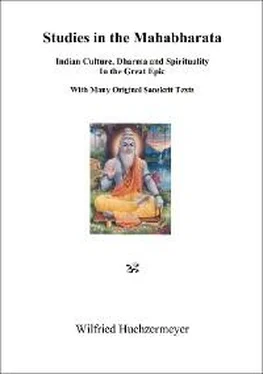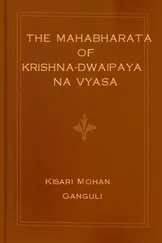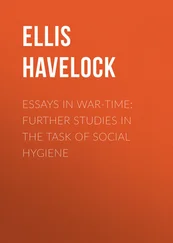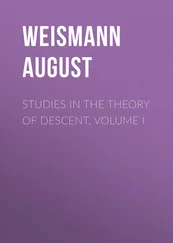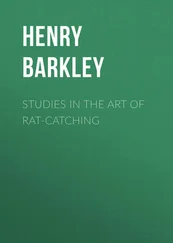How easily that void will soon be filled:
For thou wilt run thy splendid fiery race
Through cities and through regions like a star.
Men’s worship, women’s hearts inevitably
Will turn to follow, as the planets move
Unbidden round the sun…17
Arjuna knows very well that it is quite true what Citrāṅgadā says in her mood of soul-stirring melancholy. No word of his can efface the truth dawning on her; he can only ask her not to yield to her unhappy thoughts and so he tries to cheer her up. But Citrāṅgadā cannot forget any more what she has seen in that silent moment of grey dawn. She has got a sense of his cosmic personality, his greater purposes, and knows that she is but one small link in the huge chain of events in his life. She realizes that she cannot hold him back, that she must not claim him for herself. Hers is a deep, true love which finds fulfilment in itself, not in the holding of its object:
… It helps me not
To bind thee for a moment to my joy.
The impulse of thy mighty life will come
Upon thee like a wind and drive thee forth
To toil and battle and disastrous deeds
And all the giant anguish that preserves
Our world. Thou as resistlessly wast born
To these things as the leopard’s leap to strength
And beauty and fierceness, as resistlessly
As women are to love, - even though they know
Pain for the end, yet, knowing, still must love.18
Citrāṅgadā knows that her spring is over. She has cherished every moment in Arjuna’s presence, drunk in his love, given herself with all her heart. Now she lets him go with gratitude, allowing him to follow his great destiny.
Subhadrā
Arjuna continues his pilgrimage and on his way releases five apsarās from a curse by which they had been transformed into dangerous crocodiles. He then returns to Maṇalūra for a brief visit to see Citrāṅgadā and his son, Babhruvāhana.19 Next he proceeds towards the Western ocean where he meets Kṛṣṇa in Prabhāsa. The two friends and cousins20 greet each other happily and spend all their time together. Soon Arjuna falls in love with Kṛṣṇa’s beautiful sister Subhadrā whom he sees in a procession at Mount Raivataka. He confides himself to Kṛṣṇa and seeks his advice as to how to marry Subhadrā.
Kṛṣṇa responds that basically a svayaṁvara would be the standard procedure, but as the outcome of a self-choice by Subhadrā would not be certain, he advises Arjuna to abduct his sister by force. This is the kṣatriya type of marriage “which is approved of for valiant warriors by the knowers of dharma.”21
As the abduction is a risky undertaking, Yudhiṣṭhira as the head of the family is consulted first by messengers. He gives his consent whereupon Arjuna abducts Subhadrā at an appropriate moment when she returns to Dvārakā from a pilgrimage. Taking her into his chariot par force, he speeds away while the armed escort looks on helplessly. The Vṛṣṇis and Andhakas are outraged at this unexpected move of Arjuna’s and want to pursue the offender. Kṛṣṇa, however, manages to convince his kinsmen of the futility of such action. Arjuna is a worthy partner after all; therefore he should be welcomed by everyone. Thus this third marriage of Arjuna in exile is finally accepted.
This time it is a lasting liaison: Arjuna takes Subhadrā with him back to his family, creating a considerable problem for Draupadī. The latter is angry at first, but she reconciles with Arjuna when he makes Subhadrā wear a cow maid’s dress, greeting Draupadī humbly, “I am Bhadrā, your handmaid!” What a psychological ruse to win over the heart of a rival woman! Draupadī answers humorously, “let your husband [at least] have no rival!”22 There was perfect harmony then, all the brothers as well as Kuntī were pleased and delighted.
Arjuna’s marriage with Subhadrā is the most important during the exile. Not only are close ties established to the Vṛṣṇi clan, but also a son, Abhimanyu, was born to the couple whose son Parikṣit (by Uttarā) survived the Great War and became the only male successor in the dynasty. Arjuna’s first meeting with Subhadrā has been further embellished in some editions of the epic. Thus Arjuna is reported to have come to see her in the disguise of an ascetic who is attended by Subhadrā etc., adding some more romantic moments to this well-known episode which has been rendered here according to the text of the Critical Edition.
The subject of this chapter was Arjuna in his private capacity, a hero attractive to women, himself a man readily responding with passion to longing, but always with an eye on dharma, on appropriate action. Properly speaking, he is the soul of the Pāṇḍavas, perhaps not as handsome as Nakula and Sahadeva but yet well-looking, not as ostentatiously strong as Bhīma and yet immensely powerful, not as sattvic in nature as Yudhisṭhira but well-balanced in his passion. Clearly, he was also the favourite lover of Draupadī, wife of the five Pāṇḍavas. Once when during the period of his family’s exile in the forest he had gone out for some purpose and stayed away for a long while, Draupadī became very unhappy:
Without Arjuna, best of the Pāṇḍavas, … this forest is joyless. This earth looks empty, the wood with its many marvels and flowering trees appears no longer lovely without the left-handed archer.23
Mbhr. 1.182.1-2Another name of Draupadī.Mbhr. 1.205.2-3Mbhr. 2.61.35-36Mbhr. 1.205.15Mbhr. 1.206.29-30Mbhr. 1.206.33Mbhr. 3.44.20See Vanaparvan, Chapters 45-46.CWSA Vol. 1, Collected Poems, 311Ibid., 312-13There is a scene in the Āśvamedhika Parvan (Chapters 78-82) where Citrāṅgadā much later meets Arjuna once more, along with her son Babhruvāhana and Ulūpī.Kṛṣṇa’s father Vasudeva was the brother of Arjuna’s mother Kuntī.Mbhr. 211.22-23Mbhr. 1.213.20Mbhr. 3.79.12-13
2.
Śrī Kṛṣṇa – The Ritual of Departure
From the viewpoint of most Indian readers, Kṛṣṇa is regarded as a great personality of key importance in the Mahābhārata, but he is judged differently by some critical scholars in the West. In fact, the tricks employed by Kṛṣṇa in the Great War induced the German scholar Adolf Holtzmann (Sr.) in the 19th century to believe and propagate that the Pāṇḍavas were originally the bad people and the Kauravas the good ones. This ‘inversion theory’ which was further elaborated upon by A. Holtzmann (Jr.) has fallen into discredit since long, but it is remarkable that it could ever have come about at all.
Other Western scholars had a somewhat better opinion of the avatāra and rejected the theory of the two Holtzmanns. But they too often provide a picture of Kṛṣṇa which has little resemblance with that of the Indian tradition. Thus the German Indologist Walter Ruben believed that Kṛṣṇa’s role in the epic was non-essential. However, his colleague Alf Hiltebeitel objected sharply: “In my view it is not that Kṛṣṇa is non-essential but that Ruben has missed what is essential in these episodes.”24
The Russian Indologist V.I. Kalyanov even painted a very negative picture of Kṛṣṇa. In an essay titled On the Military Code of Honour in the Mahābhārata25 he argued that Kṛṣṇa used unfair means in order to defeat invincible Kaurava heroes like Droṇa and that therefore his action was immoral. Even though the facts and quotations given by Kalyanov cannot be doubted, we have to note that his interpretation has become too narrow by overlooking Kṛṣṇa’s spiritual dimension. Since it is his object to defend dharma in a global way, he has necessarily to devise means in order to eliminate a few very powerful Kaurava warriors, because – in spite of their individual nobility – they are on the wrong side. He does not break the military code of honour due to any lower motivation, but just to fulfill the object of his mission on earth, namely to repel forces of adharma and to reestablish those of dharma.26
Читать дальше
